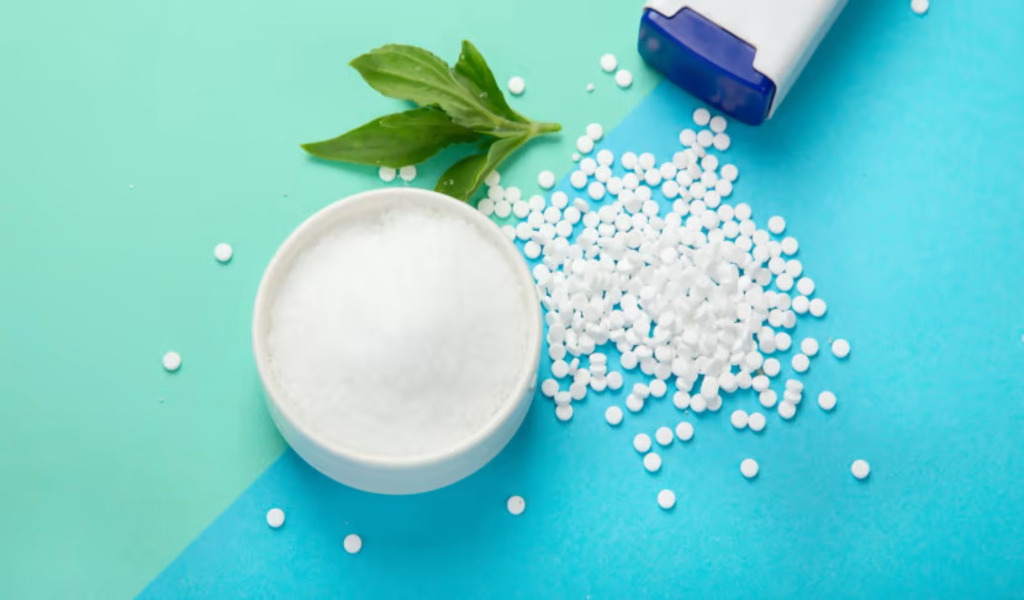(CTN NEWS) – The artificial sweetener aspartame has been classified as a “possible carcinogen” by two organizations associated with the World Health Organization (WHO).
However, they have concluded that it is still safe to consume as long as it is within the agreed-upon levels.
These rulings are the result of two distinct panels of experts affiliated with the WHO.
One panel examines whether there is any evidence indicating that a substance could be a potential hazard, while the other panel evaluates the actual risk that the substance poses in real-life situations.
Aspartame: Widely Used Sweetener Faces “Possible Carcinogen” Classification
Aspartame is widely used as a sweetener in various products, including diet sodas from Coca-Cola and Extra chewing gum from Mars, making it one of the most popular sweeteners worldwide.
Prior to the official announcement, Francesco Branca, the head of nutrition at the WHO, advised consumers to reconsider their beverage choices, suggesting that neither aspartame nor sugar should be the primary options.
Instead, Branca recommended considering a third alternative – drinking water – when faced with the decision of choosing between sweetened colas and sugary colas.
In an early Friday announcement, the International Agency for Research on Cancer (IARC), located in Lyon, France, made its first official statement regarding the additive aspartame, declaring it a “possible carcinogen.”
This classification indicates that there is limited evidence suggesting that the substance has the potential to cause cancer.
However, this classification does not consider the specific amount of aspartame consumption required for an individual to be at risk.
The evaluation of consumption levels and associated risks is the responsibility of a separate panel, the Joint Committee on Food Additives (JECFA), which is a collaboration between the World Health Organization (WHO) and the Food and Agriculture Organization (FAO), based in Geneva.
Aspartame Deemed Safe by Expert Review: No Convincing Evidence of Harm
Following a comprehensive review conducted by the Joint Committee on Food Additives (JECFA), it was announced on Friday that there is no convincing evidence of harm caused by aspartame.
JECFA reaffirmed its recommendation for people to limit their consumption of aspartame to below 40mg/kg per day.
This consumption guideline was initially established by JECFA in 1981, and similar recommendations are followed by regulators worldwide.
Independent scientists, who were not involved in the reviews, commented that the evidence linking aspartame to cancer is weak.
Associations related to the food and beverage industry welcomed the decisions, emphasizing that aspartame is a safe and beneficial option for individuals seeking to reduce sugar intake in their diets.
The World Health Organization (WHO) stated that the existing consumption levels indicate that an individual weighing between 60-70kg would need to consume more than 9-14 cans of soda per day to exceed the recommended limit, considering the average aspartame content in such beverages.
This amount is approximately ten times higher than what most people typically consume.
Francesco Branca, the head of nutrition at WHO, reassured that their findings do not suggest any risk to most consumers, particularly those who occasionally consume products containing aspartame.
Aspartame Classified as “Possible Carcinogen” by IARC: Further Research Encouraged
In June, Reuters reported that the International Agency for Research on Cancer (IARC) would classify aspartame as a “possible carcinogen” in Group 2B, alongside other substances like aloe vera extract and traditional Asian pickled vegetables.
On Friday, the IARC panel based its ruling on three human studies conducted in the United States and Europe.
These studies indicated a potential link between hepatocellular carcinoma (a type of liver cancer) and the consumption of sweeteners. The first of these studies was published in 2016.
The panel also considered limited evidence from previous animal studies, although those studies are controversial.
Additionally, the IARC noted that there was some limited evidence suggesting that aspartame possesses certain chemical properties associated with cancer.
Mary Schubauer-Berigan, the acting head of the IARC Monographs program, stated that the classification serves as an invitation to the research community to further investigate and gain a better understanding of the potential carcinogenic hazards related to aspartame consumption.
Independent scientists not associated with the WHO reviews commented on the weak evidence suggesting a link between aspartame and cancer.
Experts and Industry Respond to Aspartame’s “Possible Carcinogen” Classification
Paul Pharaoh, a professor of cancer epidemiology, explained that Group 2B classification is quite conservative and that any indication, regardless of its flaws, can place a chemical in that category or higher.
He highlighted that JECFA concluded that there is no convincing evidence of harm associated with aspartame.
Nigel Brockton, vice president of research at the American Institute for Cancer Research, expressed expectations that future research on aspartame would involve large observational studies that account for any intake of the sweetener.
Conagra Brands CEO Sean Connolly stated that the company would adhere to any government guidance regarding the use of aspartame in its products.
Some doctors expressed concern that labeling aspartame as a “possible carcinogen” might lead diet soda drinkers to switch to high-calorie sugary beverages. They emphasized that weight gain and obesity pose greater risks than aspartame.
Industry associations, such as the International Council of Beverage Associations and the International Sweeteners Association, reiterated their belief that aspartame is safe and provides consumers with a choice to reduce sugar intake.
This report includes additional contributions by Elissa Welle, Richa Naidu, and Jessica DiNapoli. The article was edited by Catherine Evans, Leslie Adler, and Mark Potter.
RELATED CTN NEWS:
Opill’s FDA Approval: First Over-the-Counter Birth Control Pill In The US
FDA Grants Full Approval To Leqembi, The First Alzheimer’s Drug Shown To Slow Cognitive Decline
WHO Report For Long COVID: Over 36 Million People In Europe Affected





